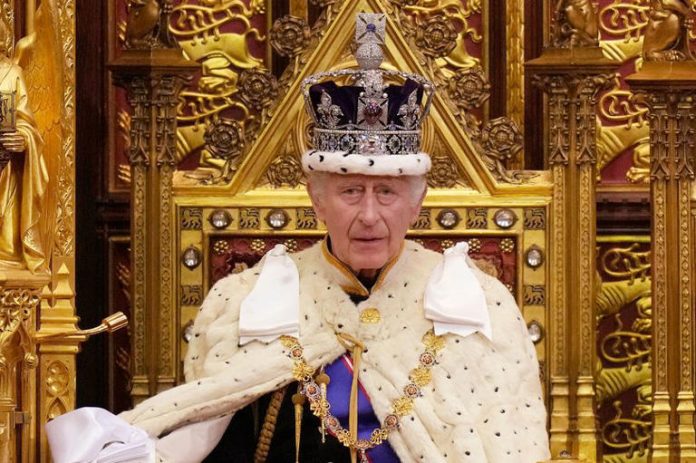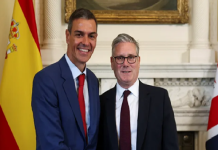LONDON/BBC/ – The government is facing increasing pressure, including from its own MPs, to abolish the two-child benefit limit in the upcoming King’s Speech.
Many Labour MPs argue that the limit exacerbates child poverty. While Prime Minister Keir Starmer acknowledges these concerns, he has stated that removing the limit is currently unaffordable.
Some Labour MPs are hopeful for a change next Wednesday, when the new government will outline its legislative agenda for the next year. One newly elected Labour MP told BBC News, “We just need to be patient and wait for the King’s Speech,” adding optimistically, “I’m very optimistic.”
According to the Department for Work and Pensions, the number of children affected by the two-child benefits cap rose to 1.6 million by April, with 440,000 households experiencing benefit cuts, an increase of nearly 8%.
The policy, introduced by the previous Conservative government, restricts households on universal or child tax credit from receiving payments for any third or subsequent child born after April 2017. The Resolution Foundation think tank estimates that abolishing the policy this year would cost the Labour government £2.5 billion.
Despite Labour’s substantial majority in the Commons, which could withstand significant internal rebellion and opposition votes, Starmer may want to avoid an early confrontation on an issue that deeply divides his MPs.
Mary Kelly Foy, Labour MP for City of Durham, labeled the policy “cruel” in a social media post, stating, “Too many families in the North East are affected by the two-child limit. We need to scrap the cap.”
The Liberal Democrats have hinted at possibly introducing an amendment in Parliament next week to pressure the Labour leader. Party leader Sir Ed Davey commented, “Let’s see what’s in the King’s Speech,” but stressed that the compelling arguments might force the government to reconsider.
Green Party MP Sian Berry called for the immediate abolition of the cap and expressed intentions to collaborate across parties to push for its removal. The Scottish National Party has also long advocated for scrapping the cap, though their reduced number of MPs has yet to decide on a strategy.
Olympia, a performing arts teacher from Redcar, Teesside, shared her family’s struggles due to the cap on BBC Radio 4’s Woman’s Hour. Living with her husband, who works in retail distribution, and their three children, she described how her youngest son often wears hand-me-downs and how they sometimes have to stretch limited food supplies. “What makes my first two children more important than my third?” she asked. “As a mum, I feel like I’ve failed.”
Olympia acknowledged their choice to have children but emphasized that a little extra support would make a significant difference.
Analysis from the Resolution Foundation shows that capped households, 59% of whom are employed, lose up to £3,500 annually in benefits for each additional child beyond the second. The percentage of children in large families living in relative poverty has risen from 41% in 2016-17 to an expected 51% by the end of this Parliament.
Lalitha Try from the Resolution Foundation noted that there is little evidence to suggest the policy has achieved its goals of increasing employment and reducing family size, but clear evidence of the financial hardship and rising poverty it has caused.
Work and Pensions Secretary Liz Kendall affirmed the government’s commitment to reducing child poverty, stating, “We will work to give every child the best start in life by delivering our manifesto commitment to implement an ambitious strategy to reduce child poverty.” She plans to hold critical meetings with charities and experts next week to address this issue urgently.
Sasha Das Gupta, co-chair of the left-wing Labour campaign group Momentum, argued that Labour should not only promise a strategy but also scrap the cap and adopt bold policies that reflect true Labour values. Momentum is preparing to launch an online tool to enable constituents to lobby their MPs to abolish the two-child benefit cap, marking the first major policy issue for Labour’s new intake of MPs to address. Constituents without a Labour MP will be encouraged to email Mr. Starmer directly.






